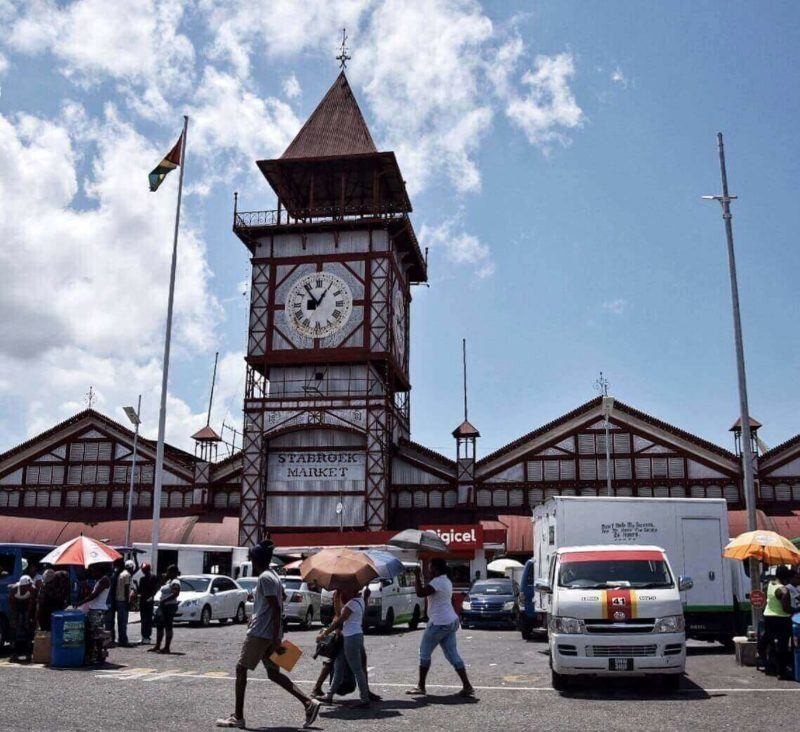West Indies Cricket Fans Forum
An indentured labourer's daughter remembers

At age 107, Sajo Jhagroo, daughter of an indentured labourer, still has vivid memories of her childhood and the stories her father told her about his life in the barracks.
The mother of nine, grandmother of 42 and great grandmother of 51, chuckled and even cried at times as she reflected on her long life.
She uses a wheelchair and her body is not as strong as it was just four years ago when she lived on her own and was very independent. Although now frail and unable to get around on her own, she is still the backbone of the family, according to her daughter Indra Mohess.
In an interview at her Penal Rock Road home, Jhagroo reflected on the life of her father, Chunu, an indentured labourer who was just 16-years-old when he was tricked into coming to Trinidad with promises of riches.
“My father said that he was married in India. He had a daughter and his wife was pregnant and some lady fool him and tell him, ‘Look they working for plenty money in Trinidad. They have to sift sugar and they working for plenty, plenty money’.”
Jhagroo left India with his sister. Their father tried to stop them but by the time he got to the ship they had already boarded. When they got to Trinidad his sister was taken to a different estate and he never saw her again.
Chunu was taken to the barracks at La Fortune, La Romaine. When he went to the estate the next morning there were other indentured labourers already working in the fields.
She said, “Everybody hand them a hoe. When they hold that hoe and they watch that cane, he say they start to cry, they throw down themself on the ground and cry like their mother dead.”
Jhagroo said when she asked her father why the labourers cried, he told her, “We regret what we do.”
When Chunu’s five years of indentureship ended he had no money to return to India, so he settled in Motel Trace, Fyzabad where he had seven children with Jhagroo’s mother.
They cultivated crops and Chunu sold milk and fish. He died at age 100.
Sajo was just 13 when her marriage to Jhagroo Harridath was arranged. They separated when their children were still very young and, as a single parent, she worked hard, planting lagoon rice, cultivating food crops and selling milk to earn a living. However, she made sure that her children always had food to eat and got an education.
She credits her long life to a healthy diet. Her favourite meal is dhal, rice and bhagi.
A devout Hindu, in her younger years Jhagroo sang and played the drums at weddings and other festive events.
She said some of the best times in her life were in the old days when people always had food to eat and there was love in communities.
Guyana Diaspora Forum
We have a large database of Guyanese worldwide. Most of our readers are in the USA, Canada, and the UK. Our Blog and Newsletter would not only carry articles and videos on Guyana, but also other articles on a wide range of subjects that may be of interest to our readers in over 200 countries, many of them non-Guyanese We hope that you like our selections.
It is estimated that over one million Guyanese, when counting their dependents, live outside of Guyana. This exceeds the population of Guyana, which is now about 750,000. Many left early in the 50’s and 60’s while others went with the next wave in the 70’s and 80’s. The latest wave left over the last 20 years. This outflow of Guyanese, therefore, covers some three generations. This outflow still continues today, where over 80 % of U.G. graduates now leave after graduating. We hope this changes, and soon.
Guyanese, like most others, try to keep their culture and pass it on to their children and grandchildren. The problem has been that many Guyanese have not looked back, or if they did it was only fleetingly. This means that the younger generations and those who left at an early age know very little about Guyana since many have not visited the country. Also, if they do get information about Guyana, it is usually negative and thus the cycle of non-interest is cultivated.
This Guyana Diaspora Online Forum , along with its monthly newsletter, aims at bringing Guyanese together to support positive news, increase travel and tourism in Guyana and, in general, foster the birth of a new Guyana, which has already begun notwithstanding the negative news that grabs the headlines. As the editor and manager of the publication, I am committed to delivering Blog entries and Newsletters that are politically balanced, and focused on the positive ideas we wish to share and foster among Guyanese.
| ||||

